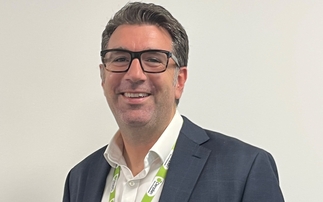Employee benefits-based cash plans are an investment in a workforce's health. Peter Lauris explains how legislation is leading to the rise of the cash plan
The current economic climate means companies are feeling more pressure than ever to re-evaluate expenditure and cut costs. While reducing employee benefits such as healthcare might be seen as a quick fix, the reality is that it is a false economy in the long term. Employees are the lifeblood of every organisation so looking after their physical and mental health is crucial for companies to thrive. This is especially important during times of uncertainty and change, and employee benefits are one way that employers can show they care.
Healthcare benefits continue to be seen as attractive and desirable by employees and demand for them is rising, particularly as basic health costs such as dental and optical check ups are becoming more expensive. When this is combined with an increased awareness of how employee wellbeing should be addressed in relation to corporate social responsibility, employees are demanding more than just a basic salary from their employer. For an employer, these benefits offer a level of reassurance that the health of the workforce is being protected and significant amounts of money can be saved through reduced absenteeism, increased productivity and staff loyalty.
Affordable products
Private medical insurance (PMI) is still a very popular employee benefit, but it is becoming increasingly more expensive as the market suffers the effects of the credit crunch, the rising cost of treatment and the pressure to include expensive new drugs. Being able to tick the box marked 'affordable' when considering PMI as an employee benefit will become less likely in the future.
According to market analyst Laing & Buisson, the biggest challenge PMI providers will face is meeting consumer demands and expectations while keeping their products at affordable prices.
This is where the healthcare cash plan (HCP) comes into its own. Unlike PMI where premiums can rise depending on a company's claims experience, HCPs are an affordable alternative and are there to cover the costs of everyday healthcare such as visits to the dentist and optician, stays in hospital, consultancies and health screening. Benefits that appeal to the corporate market in particular are the inclusion of occupational health and employee assistance programmes (EAPs) as they address duty of care obligations.
As people are increasingly looking to non-invasive and drug-free treatments to prevent and treat health problems, HCPs have expanded their range of benefits to include complementary and alternative therapies such as sports massage, osteopathy, acupuncture and reflexology. Resurgence in this kind of approach to healthcare has resulted in the growing strength of the health and wellbeing market. HCPs have recently seen significant growth and rising popularity among the corporate and consumer sector with Laing & Buisson reporting a 27% rise in employer paid HCPs in 2007.
So why are HCPs going through this renaissance? Simply put, it is down to affordability and flexibility. Employees can be covered from as little as a few pounds and there are different levels of cover. Savings can also be made by securing P11D Income Tax relief on health spending that is classified as duty of care. HCPs also allow organisations to budget long-term as their premiums are more robust and less likely to change. This is because as HCPs have fixed benefit limits where members claim up to set amounts, the claims costs are more predictable.
In addition to the affordability appeal, other factors responsible for the growth in company paid plans are the widening appeal of add-on benefits such as health screening and EAPs, and the increased interest from intermediaries.
A corporate health screening programme is a preventative approach to maintaining the health of a workforce as it ensures that employee health is monitored regularly and identifies any potential illnesses or causes of absence. For people who are already active and healthy, corporate health screening serves to reassure them and provide information about maintaining good health, fitness and wellbeing.
Incapacity costs
The cost to a company when a member of staff, particularly a senior employee, is incapacitated due to illness can be devastating. According to the Health and Safety Executive (HSE), at any time some two million British workers are suffering from ill-health that they believe is caused or worsened by their work. HSE estimates that 35 million working days are lost to ill-health each year in the UK, costing around £12bn to industry. The 'prevention is better than cure' approach therefore makes a huge difference to an organisations' bottom line.
As employers feel the impact of increased duty of care standards, employee health and wellbeing is at the forefront of HR strategies, with particular focus on dealing with workplace stress. In 2004, the management standards for work-related stress set out by HSE provided employers with guidelines to help address the mental wellbeing of their employees and their duty of care responsibilities. By offering EAPs that include professional stress counselling, employers can confidently meet a number of these standards.
EAPs provide access to professional counsellors either via a counselling helpline or face-to-face counselling sessions. Employers need to be mindful that factors outside the workplace, such as the current credit crunch, can also be a major cause of stress and failing to help employees cope when this is the case is a breach of employer duty of care. EAPs are an extremely valuable resource and employers need to promote all aspects of the service to gain the maximum benefit. Staff feel valued as a result of the provision and know they have a private and confidential option when they are finding it hard to cope.
Dental care
HCPs are a tangible benefit giving real value for money that many employees welcome with open arms, especially when the rising cost of living is putting stress on many household finances. One rising cost that has been under the media spotlight is that of dental care. A recent survey conducted by the British Dental Health Foundation and Medicash revealed that fear of the cost of dental treatments is one of the main reasons people stay away from the dentist with 45% of people saying that it was the bill as opposed to the drill that put them off.
Cash plans can also run alongside PMI for those companies that still want to provide this benefit. A PMI excess can be increased that will in turn drive down the annual premium. This excess can then be supplemented with the cash plan consultation benefit. The company benefits from the reduced annual premium while the employee does not feel the effect of the cost cutting exercise. The money saved can then be invested back in the business or even used to fund the cash plan.
All employers need to recognise the importance of a positive approach to health and having systems in place to aid retention, improve employee loyalty and help employees get back to work more quickly. A good employer should want to look after their staff, reward them, ensure they stay in good health and encourage work-life balance. Employees will feel valued by the investment made in their health and wellbeing and give their best in return. The health and future success of any organisation depends on its employees - so looking after them should be a top priority.
Peter Lauris is sales and marketing director at Medicash.











